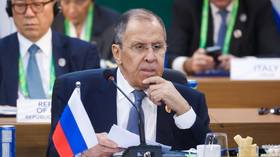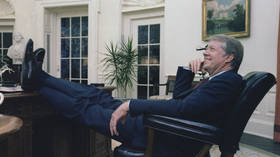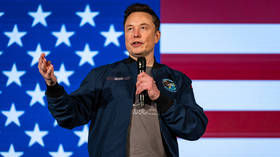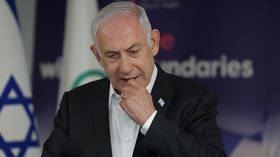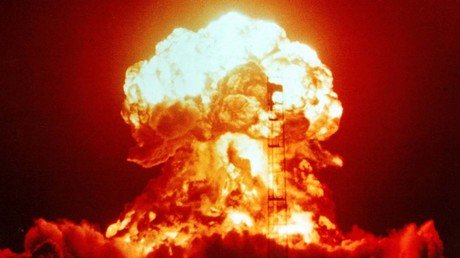‘US Congress has no Russian policy other than sanctions’ – Stephen Cohen
Inconvenient thoughts on Cold War and other news. Intelligence agencies, Nikki Haley, sanctions, and public opinion.
1. National intelligence agencies have long played major roles, often not entirely visible, in international politics. They are doing so again today, as is evident in several countries, from Russiagate in the United States and the murky Skripal assassination attempt in the UK to the apparent murder of Jamal Khashoggi in the Saudi consulate in Turkey. Leaving aside what President Obama knew about Russiagate allegations against Donald Trump and when he knew it, the question arises as to whether these operations were ordered by President Putin and Crown Prince Mohammed bin Salman (MBS) or were “rogue” operations unknown in advance by the leaders and perhaps even directed against them.
There have been plenty of purely criminal and commercial “rogue” operations by intelligence agents in history, but also “rogue” ones that were purposefully political. We know, for example, that both Soviet and US intelligence agencies - or groups of agents - tried to disrupt the Eisenhower-Khrushchev détente of the late 1950s and early 1960s, and that some intelligence players tried to stop Khrushchev’s formal recognition of West Germany, also in the early 1960s.
It is reasonable to ask, therefore, whether the attacks on Skripal and Khashoggi were “rogue” operations undertaken by political opponents of the leaders’ policies at home or abroad, with the help of one or another intelligence agency or agents. Motive is a - perhaps the - crucial question. Why would Putin order such an operation in the UK at the very moment when his government had undertaken a major Western public-relations campaign in connection with the upcoming World Cup championship in Russia? And why would MbS risk a Khashoggi scandal as he was assiduously promoting his image abroad as an enlightened reform-minded Saudi leader?
We lack the evidence and official candor needed to study these questions, as is usually the case with covert, secretive, disinforming intelligence operations. But the questions are certainly reason enough not to rush to judgment, as many US pundits do. Saying “we do not know” may be unmarketable in today’s mass-media environment, but it is honest and the right approach to potentially fruitful “analysis.”
2. We do know, however, that there has been fierce opposition in the US political-media establishment to President Trump’s policy of “cooperating with Russia,” including in US intelligence agencies, particularly the CIA and FBI - and at high levels of his own administration.
We might consider Nikki Haley’s resignation as UN ambassador in this light. Despite the laurels heaped on her by anti-Trump media, and by Trump himself at their happy-hour farewell in the White House, Haley was not widely admired by her UN colleagues. When appointed for political reasons by Trump, she had no foreign-policy credentials or any expert knowledge of other countries or of international relations generally. Judging by her performance as ambassador, nor did she acquire much on the job, almost always reading even short comments from prepared texts.
More to the point, Haley’s statements regarding Russia at the UN were, more often than not, dissimilar from Trump’s—indeed, implicitly in opposition to Trump’s. (She did nothing, for example, to offset charges in Washington that Trump’s summit meeting with Putin in Helsinki, in July, had been “treasonous.”) Who wrote these statements for her, which were very similar to statements regarding Russia that have been issued by US intelligence agencies since early 2017? It is hard to imagine that Trump was unhappy to see her go, and easier to imagine him pushing her toward the exit. A president needs a loyalist as secretary of state and at the UN. Haley’s pandering remarks at the White House about Trump’s family suggests some deal had been made to ease her out, with non-recrimination promises made on both sides. We will see if opponents of Trump’s Russia policy can put another spokesperson at the UN.
As to which aspects of US foreign policy Trump actually controls, we might ask more urgently if he authorized, or was fully informed about, the joint US-NATO-Ukraine military air exercises that got under way over Ukraine, abutting Russia, on October 8. Moscow regards these exercises as a major “provocation,” and not unreasonably.
3. What do Trump’s opponents want instead of “cooperation with Russia”? A much harder line, including more “crushing” economic sanctions. Sanctions are more like temper tantrums and road rage than actual national-security policy, and thus are often counterproductive. We have some recent evidence. Russia’s trade surplus has grown to more than $100 billion. World prices for Russia’s primary exports, oil and gas, have grown to over $80 a unit while Moscow’s federal budget is predicated on $53 a barrel. Promoters of anti-Russian sanctions gloat that they have weakened the ruble. But while imposing some hardships on ordinary citizens, the combination of high oil prices and a weaker ruble is ideal for Russian state and corporate exporters. They sell abroad for inflated foreign currency and pay their operating expenses at home in cheaper rubles. To risk a pun, they are “crushing it.”
Congressional sanctions - for exactly what is not always clear - have helped Putin in another way. For years, he has unsuccessfully tried to get “oligarchs” to repatriate their wealth abroad. US sanctions on various “oligarchs” have persuaded them and others to begin to do so, perhaps bringing back home as much as $90 billion already in 2018.
If nothing else, these new budgetary cash flows help Putin deal with his declining popularity at home - he still has an approval rating well above 60 percent - due to the Kremlin’s decision to raise the pension age for men and women, from 60 to 65 and from 55 to 60 respectively. The Kremlin can use the additional revenue to increase the value of pensions, supplement them with other social benefits, or to enact the age change over a longer period of time.
It appears that Congress, particularly the Senate, has no Russia policy other than sanctions. It might think hard about finding alternatives. One way to start would be with real “hearings” in place of the ritualistic affirmation of orthodox policy by “experts” that has long been its practice. There are more than a few actual specialists out there who think different approaches to Moscow are long overdue.
READ MORE: Most Americans favor diplomacy over sanctions when it comes to Russia – poll
4. All of these dangerous developments, indeed the new US-Russian Cold War itself, are elite projects—political, media, intelligence, etc. Voters were never really consulted. Nor do they seem to approve. In August, Gallup asked its usual sample of Americans which policy toward Russia they preferred. Fifty-eight percent wanted improved relations vs. only 36 percent who wanted a tougher US policy with more sanctions. (Meanwhile, two-thirds of Russians surveyed by an independent agency now see the United States as their country’s number-one enemy, and about three-fourths view China favorably.)
Will any of the US political figures already jockeying for the Democratic presidential nomination in 2020 take these realities into account?
Stephen F. Cohen is a professor emeritus of Russian studies and politics at New York University and Princeton University and a contributing editor of The Nation.
This article was originally published by The Nation.
Like this story? Share it with a friend!
The statements, views and opinions expressed in this column are solely those of the author and do not necessarily represent those of RT.



